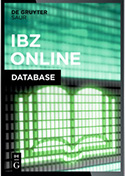<b>III. Prácticas del conocimiento</b><br/><br/>Educación y mundo común. Consideraciones intempestivas en torno a una fórmula
Resumen
La plena participación del individuo como sujeto cívico es una de las ideas que más interés ha suscitado en pedagogos, teóricos y filósofos de la educación. Así, se ha dicho que escuela es la puerta de acceso al pleno ejercicio de la competencia ciudadana. Con el auge de la llamada sociedad del aprendizaje, la insistencia en la función democrática de la educación escolar se ha visto acompañada por un cúmulo de demandas a la educación, provenientes de la sociedad y el mercado, cuyo efecto más inmediato es una sensación de asfixia tal sobre el aprendizaje, la creación y el pensamiento, que vuelve irreconocible el antiguo enlace entre la experiencia de la educación y el acceso a un mundo común. Cuando sólo se enseña y transmite lo que tiene demanda social la erosión de la educación como experiencia impredecible de formación (Bildung) resulta inevitable. No resulta extraño, entonces, que algunos filósofos hayan puesto el acento en el hecho de que quizá las medidas políticas derivadas de tales exigencias conduzcan a una versión domesticada de la democracia, en cuyo seno toma su asiento la fórmula no hay democracia sin participación, cuya lógica se pretende analizar críticamente en este ensayo.Descargas
Los autores/as que publiquen en esta revista aceptan las siguientes condiciones:
-
Los autores/as conservan los derechos de autor y ceden a la revista el derecho de la primera publicación, con el trabajo registrado con Licencia Creative Commons Atribución-NoComercial-CompartirIgual 4.0 Internacional, que permite a terceros utilizar lo publicado siempre que mencionen la autoría del trabajo y a la primera publicación en esta revista.
-
Los autores/as pueden realizar otros acuerdos contractuales independientes y adicionales para la distribución no exclusiva de la versión del artículo publicado en esta revista (p. ej., incluirlo en un repositorio institucional o publicarlo en un libro) siempre que indiquen claramente que el trabajo se publicó por primera vez en esta revista.
-
Se permite y recomienda a los autores/as a publicar su trabajo en Internet (por ejemplo en páginas institucionales o personales).











